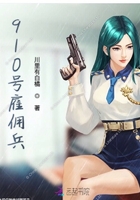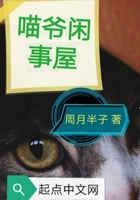Mary-'Gusta awoke next morning to find the sun shining in at the window of her bedroom. She had no means of knowing the time, but she was certain it must be very late and, in consequence, was almost dressed when Isaiah knocked at the door to tell her breakfast would be ready pretty soon. A few minutes later she appeared in the kitchen bearing the pitcher from the washstand in her room.
"What you doin' with that?" demanded Mr. Chase, who was leaning against the door-post looking out into the yard.
"I was goin' to fill it," said the child. "There wasn't any water to wash with."
Isaiah sniffed. "I ain't had no time to fill wash pitchers," he declared. "That one's been on my mind for more'n a fortni't but I've had other things to do. You can wash yourself in that basin in the sink. That's what the rest of us do."
Mary-'Gusta obediently washed in the tin basin and rubbed her face and hands dry upon the roller towel behind the closet door.
"Am I late for breakfast?" she asked, anxiously.
"No, I guess not. Ain't had breakfast yet. Cap'n Shad's out to the barn 'tendin' to the horse and Zoeth's feedin' the hens. They'll be in pretty soon, if we have luck. Course it's TIME for breakfast, but that's nothing. I'm the only one that has to think about time in this house."
The girl regarded him thoughtfully.
"You have to work awful hard, don't you, Mr. Chase?" she said.
Isaiah looked at her suspiciously.
"Huh?" he grunted. "Who told you that?"
"Nobody. I just guessed it from what you said."
"Humph! Well, you guessed right. I don't have many spare minutes."
"Yes, sir. Are you a perfect slave?"
"Eh? What?"
"Mrs. Hobbs says she is a perfect slave when she has to work hard."
"Who's Mrs. Hobbs?"
"She's--she keeps house--that is, she used to keep house for my father over in Ostable. I don't suppose she will any more now he's dead. She'll be glad, I guess. Perhaps she won't have to be a perfect slave now. She used to wear aprons same as you do. I never saw a man wear an apron before. Do you have to wear one?"
"Hey? Have to? No, course I don't have to unless I want to."
Mary-'Gusta reflected.
"I suppose," she went on, after a moment, "it saves your pants.
You'd get 'em all spotted up if you didn't wear the apron.
Pneumonia is a good thing to take out Spots."
Isaiah was surprised.
"What is?" he asked.
"Pneumonia. . . . No, I don't think that's right. It's pneumonia that makes you sick. Somethin' else takes out the spots. I know now; it's am-monia. It's very good for spots but you mustn't smell the bottle. I smelled the bottle once and it went right up into my head."
"What on earth are you talkin' about? The bottle went up into your head!"
"No, the ammonia smell did. It was awful; like--like--" she paused, evidently in search of a simile; "like sneezin' backwards," she added. "It was terrible."
Isaiah laughed. "I should think 'twould be," he declared.
"Sneezin' backwards! Ho, ho! That's a good one!"
Mary-'Gusta's eyes were still fixed upon the apron.
"Mr.--I mean Cap'n Gould said you was the cook and steward," she observed. "I don't know as I know what a steward is, exactly. Is it the one that stews things?"
"Ha, ha!" roared Isaiah. Mary-'Gusta's dignity was hurt. The color rose in her cheeks.
"Was it funny?" she asked. "I didn't know. I know that a cook cooked things, and a baker baked things, so I thought maybe a steward stewed 'em."
Mr. Chase continued to chuckle. The girl considered.
"I see," she said, with a solemn nod. "It was funny, I guess. I remember now that a friar doesn't fry things. He is a--a kind of minister. Friar Tuck was one in 'Robin Hood,' you know. Mrs.
Bailey read about him to me. Do you like 'Robin Hood,' Mr. Chase?"
Isaiah said he didn't cal'late that he knew anybody of that name.
The dialogue was interrupted here by the arrival of Zoeth and, a moment later, Captain Shadrach. Breakfast was put upon the table in the dining-room and the quartette sat down to eat.
Mary-'Gusta was quiet during the meal; she answered when spoken to but the only questions she asked were concerning David.
"He's all right," said Captain Shad. "Lively as can be. He'll have a good time out in that barn; there's considerable many mice out there. Likes mice, don't he?"
"Yes, sir. He's a good mouser. Did he look as if he missed me?"
"Eh? Well, I didn't notice. He never mentioned it if he did. You can go see him after breakfast. What do you think she can find to do today, Zoeth?"
Mr. Hamilton had evidently considered the problem.
"I thought maybe she'd like to go up to the store 'long of you and me," he suggested. "Would you, Mary'Gusta?"
Mary-'Gusta hesitated. "I'd like to very much," she said, "only--"
"Only what?"
"Only I've got to see to David and the dolls first. Couldn't I come up to the store afterwards?"
The Captain answered. "Why, I guess likely you could," he said.
"It's straight up the road to the corner. You can see the store from the top of the hill back here. Isaiah'll show you the way.
But you can 'tend to--what's that cat's name?--Oh, yes, David--you can 'tend to David right off. Isaiah'll give the critter his breakfast, and the dolls can wait 'til noontime, can't they?"
Mary-'Gusta's mind was evidently divided between inclination and duty. Duty won.
"They ain't dressed yet," she said, gravely. "And besides they might think I'd gone off and left 'em and be frightened. This is a strange place to them, same as it is to me and David, you know.
None of us have ever been visitin' before."
So it was decided that she should wait until her family had been given parental attention, and come to the store by herself. The partners left for their place of business and she and Mr. Chase remained at the house. Her first act, after leaving the table, was to go to the barn and return bearing the cat in her arms. David ate a hearty breakfast and then, after enduring a motherly lecture concerning prudence and the danger of getting lost, was permitted to go out of doors.
Mary-'Gusta, standing in the doorway, gazed after her pet.
"I hope there's no dogs around here," she said. "It would be dreadful if there was a dog."















